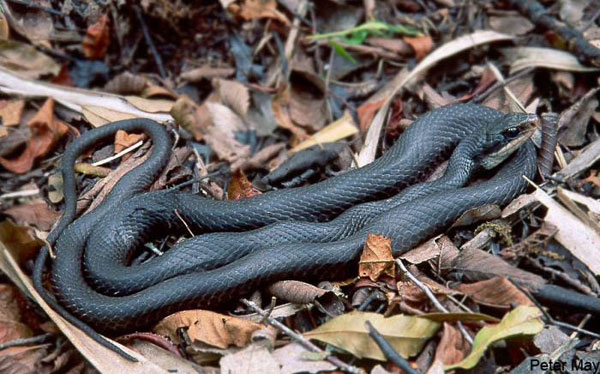Black Racer
Coluber constrictor priapus

Photo credit: Peter May
When you see a long, slender, black snake quickly moving away from you here in Florida, the chances are good that it's a black racer. Although you may be tempted to chase this speedy snake to get a better look, the black racer has been known to chase back... and even bite. It's non-poisonous, but the bite can be painful, and it's never a good idea to chase snakes.
Black racers aren't picky, and will eat almost any smaller prey including insects, lizards, birds, rodents, amphibians, and other snakes. Animals that are good at surviving on many different kinds of food can usually live in many different ecosystems, and are known as "generalists." However, the best hunting grounds for black racers are often where the forest ecosystems join other types of ecosystems, like fields and wetlands.

